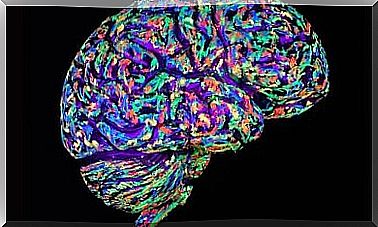Overcoming Insomnia With Cognitive Behavioral Therapy

Maybe you feel like you’ve tried everything to overcome insomnia, but nothing works. Mild insomnia can be frustrating and more severe cases can be debilitating. If you are looking for solutions, psychological treatment can be far more effective than popular medications for insomnia. Read on to learn more about how cognitive behavioral therapy works in this case.
Insomnia is a common problem that is often mistreated. Statistically, approx. 6% of the adult population of insomnia as defined by the Diagnostic and Statistical Manual of Mental Disorders (DSM-5). In addition, 12% of people with insomnia say that it interferes with their daily activities.
What is the definition of insomnia?
Insomnia is a sleep disorder. A person with insomnia has difficulty falling asleep or they wake up very early in the morning. This disorder can make it difficult to function normally and have significant negative health effects.
In addition, insomnia tends to predict the development of a number of psychological and medical conditions. That is why it is so important to get the right treatment if you have insomnia. The DSM-5 states that healthcare professionals should diagnose insomnia in cases where a person has difficulty falling asleep or sleeping.
To be diagnosed with insomnia, your problems must interfere with your daytime activities. Also, there should be no other medical or mental condition that can better explain the problem. To diagnose insomnia, it must therefore take a patient more than 30 minutes to fall asleep or they wake up after they initially fall asleep. If it happens at least three nights a week for at least six months, the person has insomnia.

Overcoming insomnia with cognitive behavioral therapy (CBT)
Several studies identify cognitive behavioral therapy (CBT) as an effective treatment for insomnia. The results of this therapy can be long lasting if there is a proper follow-up.
Doctors prescribe different types of prescription medications and other types of medications for insomnia. These include benzodiazepines, non-benzodiazepine hypnotics, antidepressants and pharmacy antihistamines such as diphenhydramine and doxylamine.
Nevertheless, there is evidence that patients respond better to non-pharmacological treatments for insomnia. These treatments also have a more long-lasting effect. Cognitive behavioral therapy has proven to be an effective and promising treatment.
This therapy is unique because it focuses on sleep. It is relatively short compared to other types of psychotherapy, and the patient plays a very active role in the treatment. The basic goal of cognitive behavioral therapy for insomnia is to help the patient sleep and function better during the day.
To achieve these goals, the therapist provides the patient with direct guidance. Nevertheless, the patient is responsible for following the therapist’s recommendations at home.
How do psychologists treat insomnia with cognitive behavioral therapy?
Cognitive behavioral therapy focuses on behavioral and cognitive processes that cause insomnia. The goal is to reset these processes. The treatment also has a time limit. Typically, an insomnia patient will see their psychologist for six to eight sessions lasting 50 minutes.
During the first session, the therapist explains the treatment to the patient and also talks about the science of sleep and circadian rhythms. The patient also communicates his goals to the therapist. The next three sessions are dedicated to treating the patient’s sleep problems, the attention they give to their symptoms, safety behaviors and energy during the day.

The fifth, sixth and seventh sessions cover things like relaxation, sleep hygiene, day and night routines, etc. Finally, the eighth session focuses on preventing relapse.
When you start cognitive behavioral therapy for insomnia with a new therapist, they will evaluate you first. They will look at your medical history as well as your history of insomnia and severity. This first session contains several components that are critical to the treatment. Then the psychologist will give you a summary and design of the treatment. They will also talk about your particular case and explain the basic sleep patterns and processes.
The last thing you do with your therapist in the first session is identify the behavioral and cognitive processes that you need to treat to overcome insomnia. When you have finished your treatment, review all the techniques and tools you have learned to overcome insomnia and prevent relapse.









